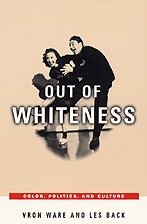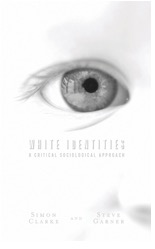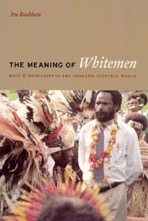White studies and Arizona’s HB 2120
Just this past week in Arizona, lawmakers in Arizona killed HB 2120 (but only after significant academic protest), a bill spurred by a white studies course at Arizona State University, which would have prohibited state-funded universities “from offering any class or activity that promotes division, resentment or social justice toward a race, gender, religion, political affiliation, social class or other class of people,” or encourages “solidarity or isolation” based on those same categories. Ethnic studies is already banned in K-12 education in Arizona, and HB2120 would have built on recent cases like one in Wisconsin, where because of a course on racism entitled “The Problem of Whiteness,” Republican legislators threatened to withhold funds from the University of Wisconsin at Madison.
A recent piece at Inside Higher Ed goes in much deeper about this crisis in representation, including an account from Christina Berchini, an assistant professor at the University of Wisconsin at Eau Claire, who wrote about the attempt to shutdown whiteness studies in a local op-ed:
Berchini, who studies whiteness, said in an interview that conversations about it are often “upsetting because it’s so uncomfortable” — in part because many people have never before been asked what it means to be white. Her response is, “What can we do with that discomfort to move toward a more just and critical society of the institutions that historically but also currently oppress people of color and minoritize groups?”
That’s a key question for students who plan to work in education, policing, housing or other areas with real-world connections to race studies, she said. Banning such inquiry would amount to a kind of “erasure.”
Of the failed HB 2120, Berchini said that it “only illustrates how desperate the need is for this kind of learning and curriculum. I can’t bear to think about the next generation of people who might have this opportunity to learn taken from them.”
You can read the full article at Inside Higher Ed, but in the meantime, here are some titles from the UCP backlist that have critically engaged with whiteness studies in the attempt to challenge our conceptions of race, privilege, and transparency:

Vron Ware and Les Back’s Out of Whiteness: Color, Politics, and Culture, surveys postwar and contemporary British and American culture to ask some questions imperative to our accounting of the twentieth century’s particular forms of racism: What happens when those living in societies stratified by race refuse to accept the privileges inherent in whiteness? What difference does it make when whites act in a manner that contradicts their designated racial identity?

Steve Garner and Simon Clarke’s White Identities: A Critical Sociological Approach (Pluto Press) offers a critical introduction to the construction of white identity through the lens of race and ethnicity studies, geared for the undergraduate student.

Ira Bashkow’s The Meaning of Whitemen: Race and Modernity in the Orokaiva Cultural World explores whiteness and race in a non-Western society via Papau New Guinea, where the whiteman remains a significant racial and cultural other here—not only as an archetype of power and wealth in the modern arena, but also as a foil for people’s evaluations of themselves within vernacular frames of meaning.

Crispin Sartwell’s Act Like You Know: African-American Autobiography and White Identity, which accounts how African-American autobiography perceives white identity from a particular and unique vantage point; intimate, yet fundamentally removed from the white world and thus unencumbered by its obfuscating claims to normativity.
To read the Inside Higher Ed piece in full, click here.